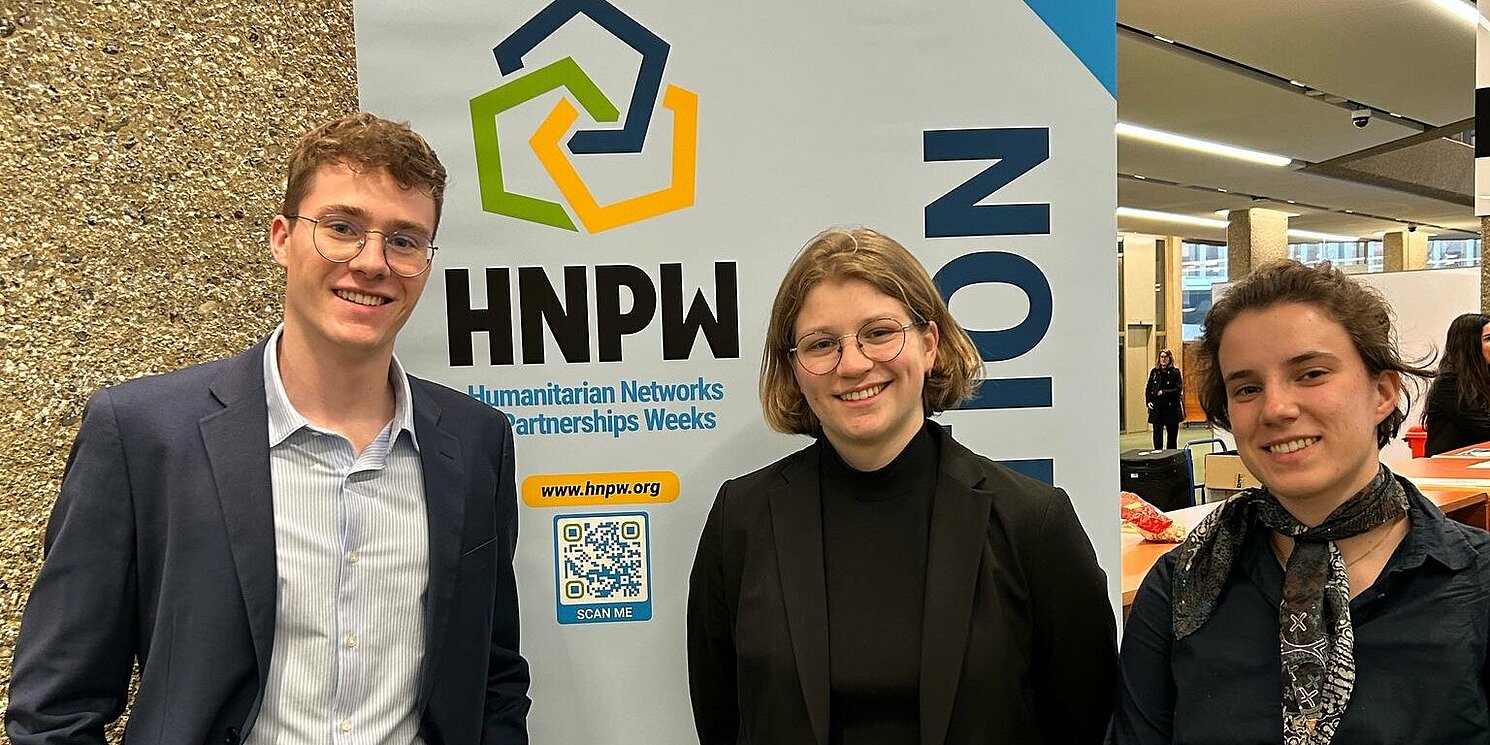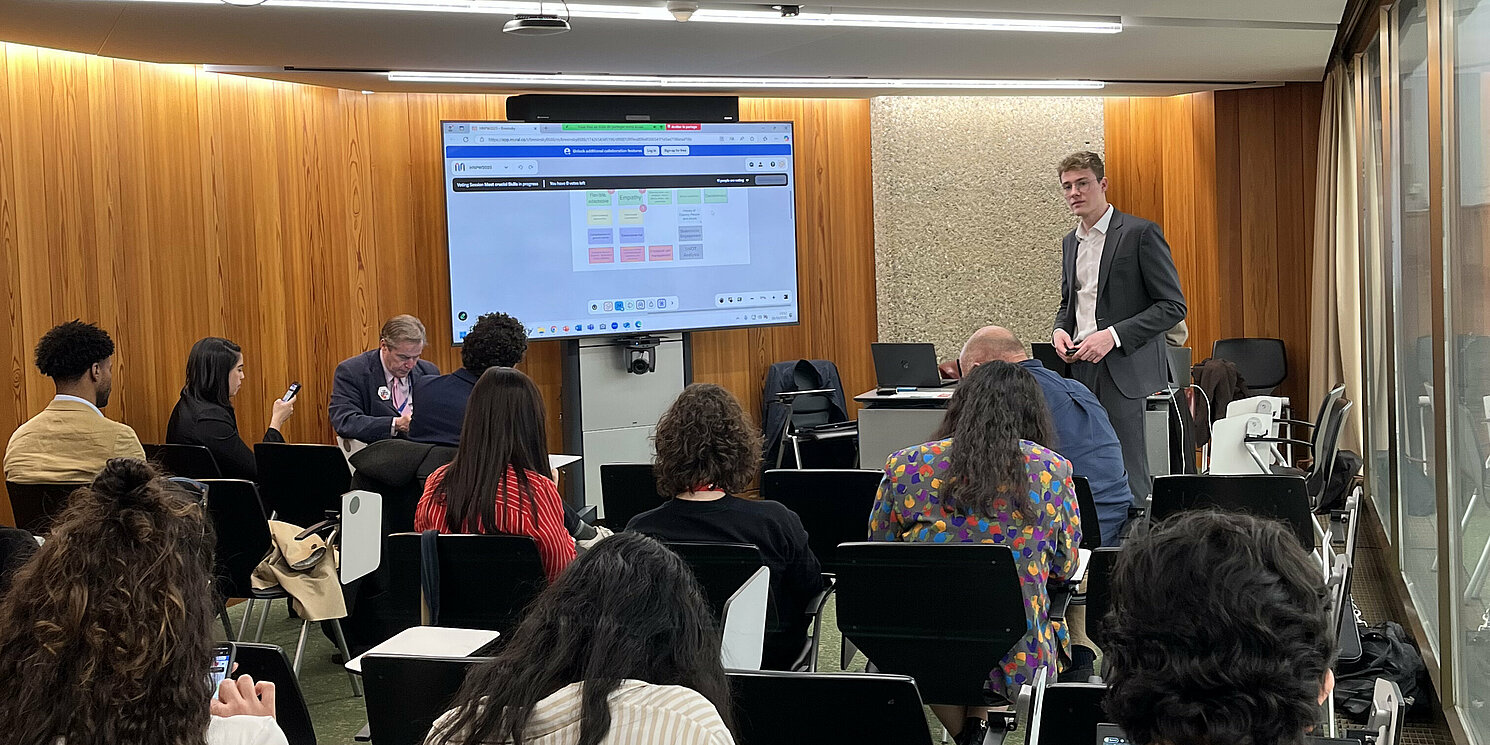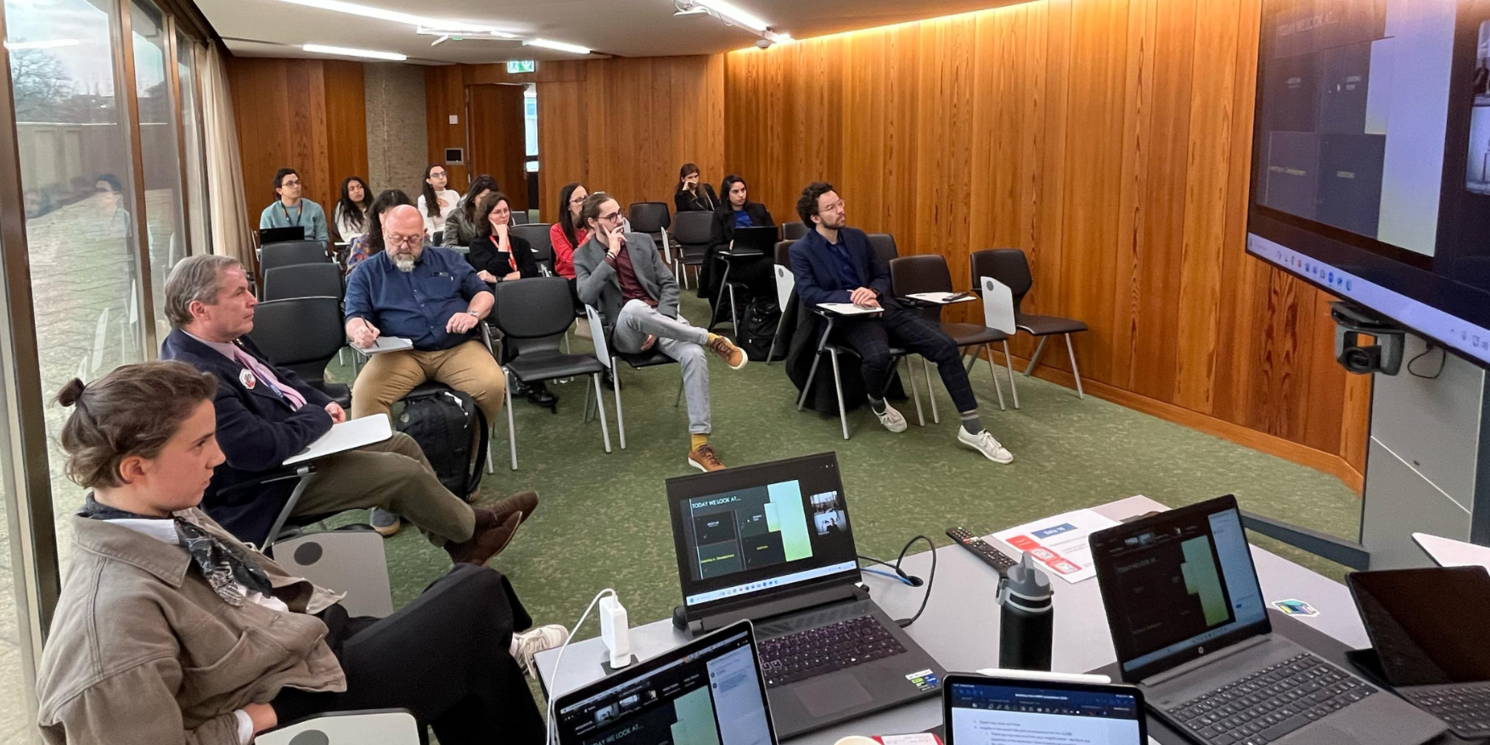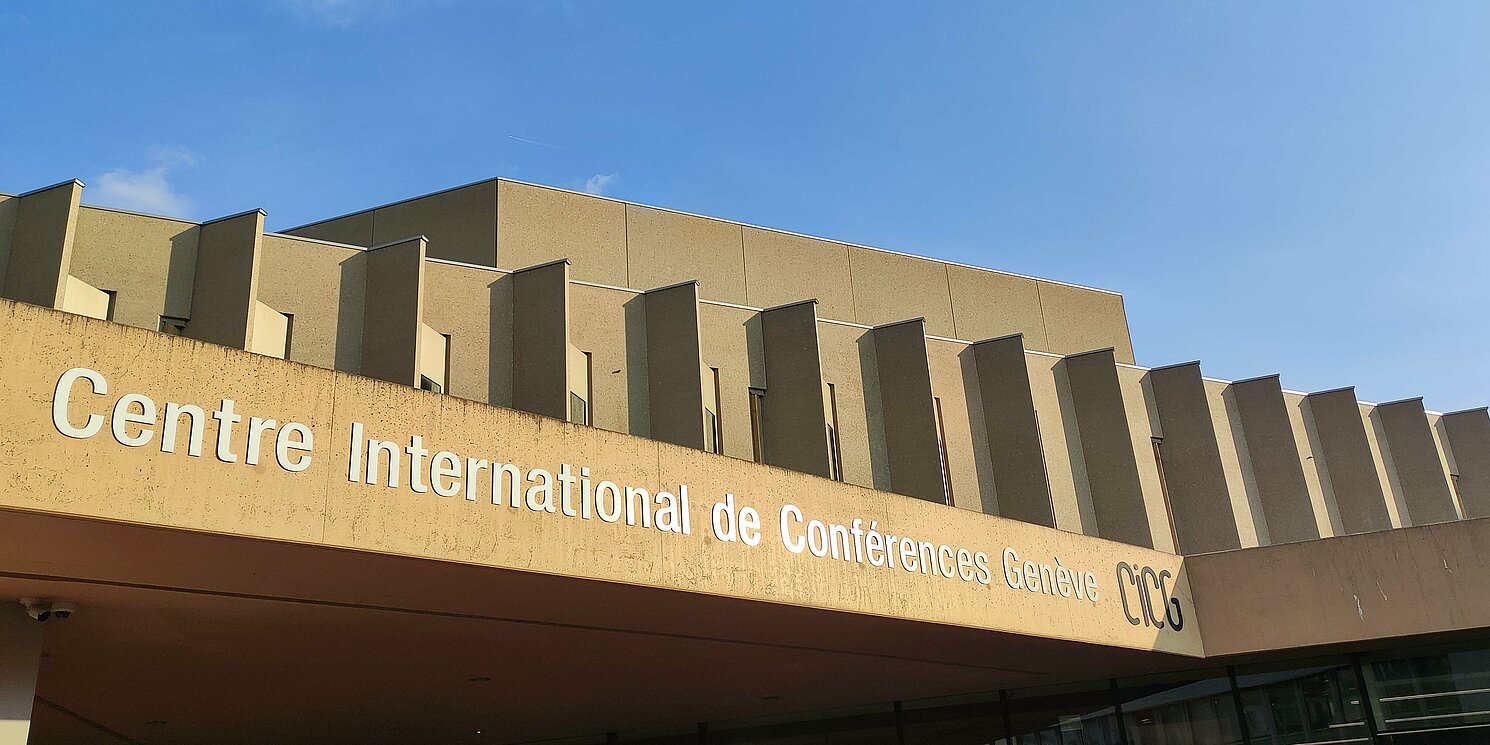From 26 to 28 March 2025, the three students Meike Fassbinder, Matthias Kauper and Jacqueline Mayrdofer from OTH Regensburg travelled to Geneva to present and further develop the humanitarian simulation exercise GLOBE Exercise. The event, organised by the United Nations Office for the Coordination of Humanitarian Affairs (UN OCHA), is one of the largest humanitarian events of its kind and serves as a global forum for experts to share knowledge, discuss challenges and strengthen cross-sectoral cooperation. The GLOBE Exercise has been held under the academic direction of Prof. Dr Markus Bresinsky in the International Relations and Management degree programme at OTH Regensburg since 2013. It was developed to equip students and young professionals with essential skills in crisis management and inter-organisational cooperation and has established itself as a recognised training tool.
Interactive workshop: The effect of pre-learning on simulation exercises
The highlight of our participation in the HNPW was the interactive workshop entitled ‘Training the Next Generation of Humanitarian Workers: The Effect of Pre-learning on Simulation Exercises’, which took place in hybrid form on 28 March and attracted almost thirty experts from various humanitarian organisations and academia.
After a brief introduction to the GLOBE Exercise, Ulrike de Ponte, Academic Director of the additional study programme ‘Intercultural Action Competence’ at OTH Regensburg, gave a virtual keynote speech on the impact of prior knowledge and targeted preparation on the effectiveness of simulation exercises. The participants then engaged in interactive discussions about the key competences of humanitarian professionals. In the second half of the workshop, the preparatory exercise introduced in 2023 for the actual simulation exercise, the so-called GLOBE Tabletop, was presented. In groups, the participants then developed new training tasks for this preliminary exercise, with a special focus on the previously identified key competences. Further training needs were also discussed, including emotional support mechanisms for emergency forces and the integration and reinforcement of the principles of international humanitarian law.
Strengthening networks and promoting future collaboration
In addition to the workshop, the OTH team used the HNPW to make contact with key players, deepen existing partnerships and explore new opportunities for cooperation. The consistently positive response to the GLOBE Exercise confirmed its relevance for the training of future humanitarian professionals, while the feedback from practitioners provided valuable impetus for further development. In addition, opportunities for cooperation with other universities and training programmes were identified, enabling interdisciplinary learning and improved training approaches.
Next steps: Integrating findings into future training sessions
The knowledge gained at the HNPW will be incorporated directly into the next GLOBE Exercise. The workshop participants were also invited to join the GLOBE network to ensure a continuous exchange of knowledge.
OTH Regensburg's presence at the HNPW once again emphasises the university's commitment to innovative, practice-oriented training. By continuously developing training methods and promoting international cooperation, the university is successfully helping to train the next generation of humanitarian leaders.



